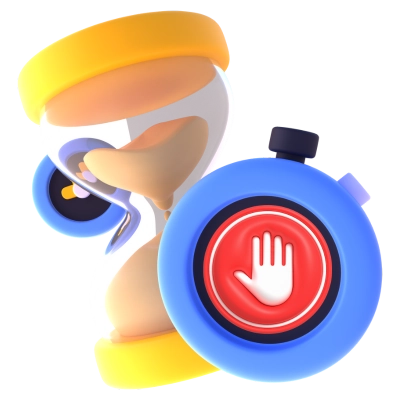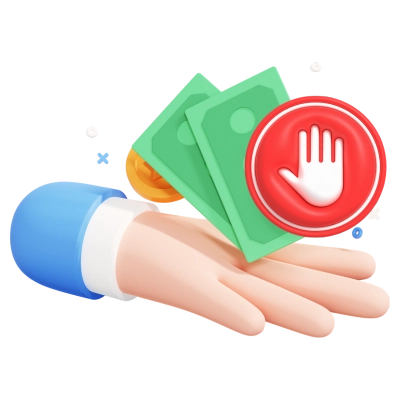How to Avoid Gambling Addiction When Using Casino Apps

The rise in the popularity of casino apps is primarily based on the convenience they offer for gambling anytime, anywhere. However, some risks come with such convenience, particularly the danger of addiction. Casino apps can be a great source of entertainment and leisure—many gamblers consider this a fun hobby when they have healthy limits in place, like a gambling budget and a time limit. The key is not to let online gambling consume your life and put the other essential things in your life in danger, like your family, friends, job, or peace of mind.
In our guide, we’ll discuss how to avoid gambling addiction when using casino apps and provide actionable tips to help readers prevent gambling problems or addictions while enjoying casino apps responsibly. Learn about the red flags of a developing gambling problem/addiction, understand the risk, and become familiar with the responsible gambling practices anyone using a casino app should incorporate into their routine.
If you’re already struggling with gambling problems or addictions, we’ve included some resources for accessing professional help on a national level. As always, we’d encourage anyone with issues or addictions to consult their state’s help resources as well to deal with these issues sooner rather than later.
Understand the Risks of Gambling Addiction
For the record, there really aren’t any upsides to gambling addictions—it’s something that comes with a lot of risk for gamblers without any benefits whatsoever. To understand the risks behind developing gambling problems or addictions, we have to start by defining what they are and how casino apps present more of a temptation for gamblers than land-based casinos ever have.
Define Gambling Addiction
Gambling addiction is a repeated pattern of ongoing sports betting or gambling that people fall into even though it’s creating problems in their lives. It’s an impulse-control disorder where gamblers cannot control their impulse to gamble, even if there are dire consequences for their career, friends/family, or peace of mind. If you’re dealing with gambling addiction, you should probably not gamble online, even with the responsible gambling tools you could use to limit yourself.
On the other hand, gambling problems are different from addictions, and anyone can technically be at risk for developing gambling problems. These are gambling behaviors that disrupt your life, but you’re not totally out of control. They are much more manageable and, though it might be better overall not to gamble at all if you have a gambling problem, it’s possible to have a gambling problem but deal with it using responsible gambling practices and putting healthy limits into place like a gambling budget or time limits on your sessions.
Why Casino Apps Can Be More Addictive
Casino apps are shown to be far more addictive than land-based casinos, but there are no geographical limitations for gamblers to overcome when it comes to casino apps and websites. Whereas before, gamblers would have to travel to a brick-and-mortar casino, off-track betting center, or a retail sportsbook to stake money on casino games or sports bets; casino apps offer their users 24/7 access and ultimate ease of use. Another significant consideration is the lack of face-to-face interactions, making it easier for users to lose track of time and money.
Statistics
Let’s look at some statistics, studies, and research that back up the increased danger of betting on sports or playing casino games online compared to doing these activities in a physical location like a casino, OTB center, or retail sportsbook.
- According to the National Institutes of Health (NIH), the rate of problem gambling prevalence for land-based gambling establishments was 4%, while the rate for online casino apps was 21.9%!
- The National Institutes of Health (NIH) also found that online gamblers are 1.5-3.2 times more likely to develop at-risk or pathological gambling compared to gamblers who don’t gamble online.
- The National Institutes of Health (NIH) also found that digital forms of money were more likely to make gamblers feel that they weren’t really spending money. These forms of payment are common in online casinos and sports betting apps. These include e-wallets, credit cards, prepaid cards, or electronic bank transfers.
- A study on online sports gambling by the National Council on Problem Gambling showed that 16% of gamblers met the criteria for a gambling disorder, while 13% showed signs of a gambling problem.
- The National Institutes of Health (NIH) found that online gamblers were much less likely to seek help for their problems than those who gamble in physical locations with cash.
A lot of the data shows that gamblers are far more susceptible to gambling problems or addictions when they’re gambling online versus gambling in the more traditional forms. Because of increased convenience and a lack of accountability that comes when there aren’t any eyes watching, online gamblers are also much less likely to seek help when they come up against the struggles of addiction or gambling problems.
Set Clear Limits Before You Start
Suppose you’re trying to be proactive in your approach to gambling using casino apps, and you’re serious about not wanting to slip into gambling problems or addictions. In that case, you must set clear limits and boundaries before signing up, funding your account, or playing your favorite games. Once you draw some clear lines in the sand and stay disciplined in not crossing them, you can ensure that online gambling remains a fun activity where you aren’t sliding into problem gambling habits.

Time Limits
Placing a time cap on your gambling sessions helps limit the time you spend on casino apps. Not only does this help gamblers make good use of their time, leaving space for important things in life like friends, family, and other activities, but it also keeps gambling sessions more succinct and minimizes potential losses. The longer you gamble, the more likely you are to lose money, so placing time limits can really work in a gambler’s favor.
Time limits may look different for each gambler, depending on how much free time each gambler has. Something that’s important to consider is to keep the timing of your gambling sessions proportionate to the size of your bankroll. If you have a smaller, limited budget, you’ll have more strict time limits and shorter sessions than someone with access to a larger bankroll.

Financial Limits
Along with time caps on your sessions, you should set financial limits where you deal with a set gambling budget for each session. It’s an allotted amount for the week or the month dedicated strictly to gambling—it’s money that the gambler can afford to lose if their luck goes south. Setting these financial limits can prevent unnecessary losses due to a gambler with no self-control.
Many casino apps will have built-in tools to keep you accountable to your gambling budget goals, including deposit limits, self-exclusion lists, and “reality checks.” Deposit limits are beneficial, and they’re entirely voluntary on the part of the gambler. These limits will keep gamblers from transferring too much money into their account throughout a predetermined period. Sometimes, you can use third-party apps to stay true to your gambling parameters if your casino app has limited help resources.
Stick to Your Limits
It can become challenging to stay accountable to the limits you’ve set on a casino app, especially if you’re tempted to push those limits for a thrill or seek a risk to grow. Follow these tips on how to stay disciplined and avoid the temptation to gamble more:
- Use budgeting apps or planners in sync with your casino app to access an overview of your spending and how well you stick with your budgetary goals.
- Avoid gambling while you’re tired or under the influence of alcohol. When you’re in these states, your judgment can become cloudy. You’re more prone to making illogical decisions when your guard is down.
- Avoid borrowing money to gamble. This includes taking out loans from the bank, borrowing from friends or family, and using credit cards.
- When your bankroll for the day, week, or month runs out, terminate your session immediately.
Although it might not seem fun to have limits in place, and one could argue that it could stunt the growth of your bankroll, it’s best to have these boundaries if you’re someone who’s susceptible to gambling problems or you feel you may be developing an addiction. You need to learn to keep your temptations and impulses in check before you start thinking about playing or working your money strategically to grow your total balance.
Use Responsible Gambling Features
Real money casino apps come with features that can help gamblers exercise responsible gambling practices and keep accountable to their goals to stay away from problem gambling or developing gambling addictions. If you’re interested in app features for managing addiction and cementing responsible gambling principles into your sessions, we’ll show you these helpful tools and how to use them. We’ll even point you in the direction of third-party tools as well.
App Features to Help Manage Addiction
A ton of these tools can be found on most real money casino apps and include but aren’t limited to the following:
- Deposit Limits: This responsible gambling tool is included at most online casinos. Deposit limits restrict the amount of money that can be transferred into an account within a specific timeframe. Deposit limits can be a powerful tool for gamblers to manage their spending effectively and avoid the temptation of blowing through a bigger bankroll total.
- Cool-Off Periods: These refer to periods when individuals voluntarily abstain from gambling activities like online casino games or sports betting. In many cases, these are the periods between self-exclusion when gamblers have time to think about their decision and change their mind if they wish to pursue another period of self-exclusion.
- Self-Exclusion Options: Casino apps and land-based casinos offer powerful accountability tools to their gamblers. Gamblers can take a voluntary step to exclude themselves from accessing casino apps or entering brick-and-mortar casinos, off-track betting sites, or retail sportsbooks. It’s a voluntary ban from gambling, and the gambler can choose how long they want this period to last.
- Reality Checks: This window will display how long the player has been logged in by showing them when the session started and how much they wagered. There’s also a display showing the amount of money that was either won or lost. This tool can put things into perspective for gamblers who could quickly lose track of the facts during a session and continue forward, in some cases to their detriment.
How to Activate These Features
Finding these features will be different going from one casino app to another, but more likely than not, you can find these resources under menus like “Responsible Gambling.” They aren’t too difficult to find. When in doubt, check out the app’s or site’s footer menu and click “Help.” You could even access the customer service center to get answers to the kind of problem gambling resources are available to users. We would dive into specifics on how to find these resources, but it will differ from one app to another.
Third-Party Tools
In addition to traditional gambling addiction resources like the 1-800-GAMBLER hotline and the National Council on Problem Gambling, several third-party apps and organizations help monitor and control gambling behavior. They are worth a look, and the National Library of Medicine did a study finding out how effective they were in assisting gamblers through their problem or addictions.
These third-party apps include the following:
- 12-Step Gamblers Anonymous 888-ADMIT-IT
- Bettor Time Gambling Control Gambless
- Gambling Addiction Gambling Addiction Calendar
- Gambling Addiction Test Gambling Therapy
- QuitGamble RecoverMe
- playRIGHT Quit Gambling
- Stay on Track SA Stop Addiction: Gambling
Keep Track of Your Gambling Habits
There are plenty of people who might not be sure if they have a legitimate gambling problem/ addiction or not, which makes it important to track your gambling habits. Picking up on trends or patterns in your gambling rituals can clue you into any warning signs that might indicate that you’re slipping into problems or addictions.
Why Tracking Is Important
Track how much time and money you’re spending on gambling apps to find out if you’re coming in under your time and budget limits. It’s almost like not checking your bank account and being surprised when you’ve gone through more money than you initially thought. Keeping a close eye on your budget and closely tracking the time on your gambling sessions can help you stay accountable to your responsible gambling goals. Once you get into a consistent rhythm of tracking time and money, you can use your time in the wisest manner possible and you can minimize potential losses that come with gambling without considering your budget.
Methods of Tracking
You can go the old-fashioned route when it comes to tracking the time on your gambling sessions and the budget you’re using for online gambling. Use computer or paper spreadsheets to track crucial information on every bet, such as the odds, the betting unit used, the bet result, and whether you won or lost money.
However, you’re more accustomed to using mobile apps to work through life’s problems. In that case, dedicated apps track the profitability of your bets, your adherence to your personal gambling budget, and how well you’re committed to your gambling session’s time limits.
Dedicated Tracking Apps
- CasinoIQ
- BettingLog
- Banky
- Left Pocket
- Poker Stack
- Money Tracker
Depending on which casino app you’re using, it may or may not offer some or all of these features as a perk for its members. Before tracking your time limits and budget on spreadsheets or before you download a third-party app, check if your casino app offers these services on its platform. For added convenience, you can do online gambling and use responsible gambling tools all in one place.
Analyze Your Habits
Regularly review their gambling patterns to spot early signs of problematic behavior. Once you’re familiar with the signs, there are steps you can take to deal with them before they get out of hand effectively. Remember that some of the earlier signs of developing gambling addiction include the following:
- You feel irritable when you aren’t gambling
- Gambling consumes your thoughts
- You try to stop gambling, but you fail
- Gambling is your way of dealing with negative emotions like boredom, frustration, or anger
- You conceal the extent of your gambling habits from your family or friends
- Chasing gambling losses
- You feel the need to gamble more to achieve the same high
- You keep gambling despite the dire consequences
If you’re experiencing any of these things, there’s a likelihood that you already have a gambling problem or that you’re developing a gambling addiction. You can nip this in the bud by implementing sound strategies to manage gambling, such as:
- Setting up time limits on your sessions
- Setting up a budget
- Avoiding gambling when you’re feeling sad, frustrated, or angry
- Avoiding gambling when under the influence or tired
- Replacing time gambling with spending time with other hobbies or with family and friends
- Not taking out credit to find your account
- Not chasing losses but terminating a gambling session early
Maintain a Balanced Life Outside of Gambling
What kind of life is it where all you can think about is your next gambling session? It’s critical to live a balanced life where gambling is only a small part amid the other important things. Make time for family, friends, and other hobbies or activities—you’ll lead a fuller, richer life when there’s a good balance between the multiple parts of your life.
The Importance of Balance
On paper, achieving balance is done through avoiding obsession. It can be easier said than done because the things we can become obsessed with are the things that sometimes bring us the most pleasure in life. One of the reasons we push for limits in gamblers’ online gambling habits is because these limits keep gamblers in check and force them to treat online gambling in a non-extreme way.
Having time limits forces gamblers to leave some extra time for other important things, like other hobbies and social activities. Budgetary limits are designed to keep spending on gambling under control, and this lets gamblers have more money in the bank to take care of themselves and to spend on other leisure activities. Limits can create balance in a gambler’s life and can largely keep them from obsessing over the activity.
Create Healthy Distractions
One of the best ways to eliminate gambling obsession is to replace the extra time you might be spending gambling with other activities, also known as healthy distractions. Alternative activities include exercise, reading, volunteering, or spending time with friends. Replacing gambling with these hobbies, interests, or activities can fill the void gambling might occupy.
Monitor Your Mental Health
One of the biggest ways that problem gambling can become apparent in the life of a gambler is through their emotions. Gambling addictions or problems will often lead gamblers to become irritable or annoyed when they aren’t gambling. They might become deceptive about how they’re spending their time gambling when talking with their family or friends.
Gamblers should be keeping an eye on their emotional well-being and being aware of how stress, anxiety, or depression can lead to excessive gambling. In many cases, emotions like this can create a vulnerable spot and leave gamblers more susceptible to falling into problems or addiction if left untreated.
Know the Warning Signs of Addiction
Addictions to gambling aren’t always completely obvious. Sometimes, the signs can be overlooked, so gambling addictions/problems can become difficult to recognize. Knowing some common red flags and warning signs of a developing gambling problem or addiction can provide some critical insights as to the possibility of where a player might stand on the scale between responsible gambling practices or reckless problem gambling or addiction.
List Common Warning Signs
Let’s address some specific red flags common when gamblers let their habits get out of hand. You don’t have to exhibit every one of these signs to have a gambling problem, but the more of these that are apparent in your gambling life, the more likely it is that you have a more severe problem or that you’re completely addicted.
- You obsess over gambling—it dominates your thoughts.
- You get into trouble at work, in your personal relationships, or financially due to your gambling habits.
- You have trouble paying your bills because you aren’t properly managing your gambling budget.
- You cannot set time or budget limits for yourself.
- You gamble as a way to deal with negative emotions like depression, boredom, frustration, anxiety, or loneliness.
- You’re gambling to cover your losses.
- You feel restless or irritable when you aren’t gambling.
- You lie to your family or friends about the extent of your gambling activities.
As we mentioned before, those with gambling addictions should probably not be using online casinos or sports betting apps at all. When it comes to addiction, these gamblers cannot severely implement responsible gambling practices even when given the right tools to succeed. For gambling addiction, those gamblers should add themselves to self-exclusion lists for online or land-based casinos to avoid getting themselves in trouble.
Some gamblers might have minor gambling problems where they haven’t sunk to the level of an all-out gambling addiction, but their gambling habits aren’t too healthy either. In these cases, gamblers can take up responsible gambling practices effectively and use them as a guidebook to direct their decisions and enjoy healthy gambling habits where it’s not an all-consuming force in their life.
Self-Assessment Tools
To access quizzes or resources that you can use to assess your own risk for addictions, it’s best to visit your state’s Department of Gaming or Gambling website for these helpful tools. You can take the quiz or assessment and discover the state-specific resources that are available where you live to deal with problems or addiction.
Here are a few state-specific examples of these assessments:
- Arizona Problem Gambling Self Screening Quiz
- New York Approved Gambling Screening and Assessment
- Massachusetts Screening for Gambling Disorders
There are several nationwide assessments to gauge your own risk for gambling addiction, including one from the National Council on Problem Gambling:
Seek Help if Needed
As soon as you’re aware that you may have a gambling problem or addiction, we recommend seeking help as quickly as possible. Look for the warning signs and seek early intervention before you fall into unhealthy habits and get used to them. Acting sooner rather than later can make a big difference because the challenge of undoing deep-seated habits isn’t there when gamblers seek earlier treatment.
Where to Get Help for Gambling Addiction
Once you’re aware of a gambling problem or addiction forming in your life, the next step is finding the help you need, but where do you go? There are plenty of professional support resources available all across the nation. In fact, each state has its own websites and gambling problem/addiction tools for helping its residents deal with and overcome these challenges.
Professional Support
Two of the most well-known professional support groups for those with gambling problems or addictions are Gamblers Anonymous and the National Problem Gambling Helpline. Both are national resources available in all states and provide support tools for gamblers who are seeking help and committed to recovery.
- Gamblers Anonymous: Click Here
- National Problem Gambling Helpline: 1-800-GAMBLER

Gamblers Anonymous offers many options, including traditional in-person meetings and online support groups (GamTalk). There’s also Gam-Anon, which is a support group designed for friends and family of those who have gambling addictions.
Useful Apps and Resources
We’d be remiss if we didn’t mention helpful mobile apps designed to help gamblers control their habits. These apps are another avenue for bettors and gamblers to get the help, support, and accountability they need, all in the convenient form of a dedicated mobile app on their smartphones.
- Quit Gamble
- RecoverMe
- Addiction Avert
- My Gamblers Anonymous Toolkit
- Cassava
- Cost2Play
- iPromises
- Gamblers Anonymous Red Book
- Sobertool
- recoveryBox
Encourage Reaching Out
You don’t have to face addiction alone. If you keep yourself isolated in your struggle, you could wind up in a much worse position than you could if you shared your challenges with friends, family, or professionals for support. Reach out for help before things get worse—the quicker you can nip it in the bud, the better off you’ll be!
Avoid Gambling Addictions Through Responsible Gambling or Abstinence!
We can’t state enough the importance of responsible gambling. Your goal with online gambling should be fun and leisure. Do your best to view it as a money-making endeavor or use it as a way to deal with stress or frustration. As seen in statistics, online gambling can be a much more dangerous force for the development of gambling problems or addictions, so it’s key to incorporate responsible gambling into all your sessions.
If you have mild gambling problems, you can keep yourself in check by adhering to the following responsible gambling practices:
- Set up a gambling budget, and don’t go over it.
- Place time limits on your sessions and take breaks on top of that whenever needed.
- Quit gambling sessions based on your win limits or loss limits (avoid chasing losses at all costs).
- Avoid gambling when tired, under the influence, or you’re feeling frustrated, angry, or stressed.
- Use third-party apps or in-app features, such as deposit limits, self-exclusion lists, cool-off periods, or reality checks, to manage overindulgence.
Gambling addictions are much more serious than gambling problems, and most of the time, they require a firmer hand to deal with. If you have uncontrollable urges to gamble and you cannot stick to firm boundaries or limits, it’s best to abstain from the activity altogether. At this point, it’s best to add yourself to as many exclusion lists as possible and take advantage of resources like Gamblers Anonymous or the 1-8000-GAMBLER hotline for continued support in your recovery plan.


